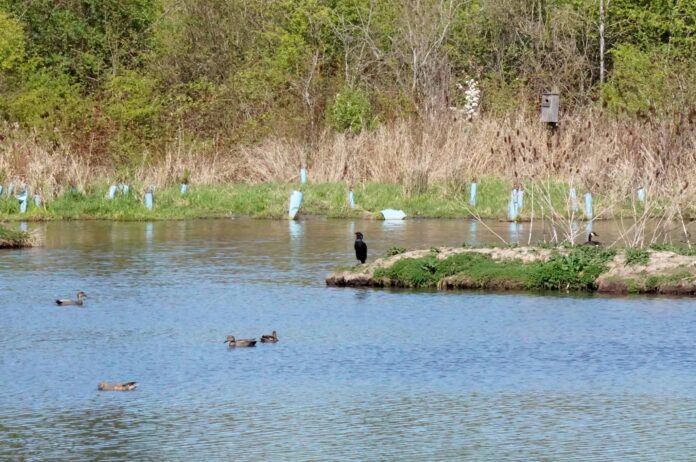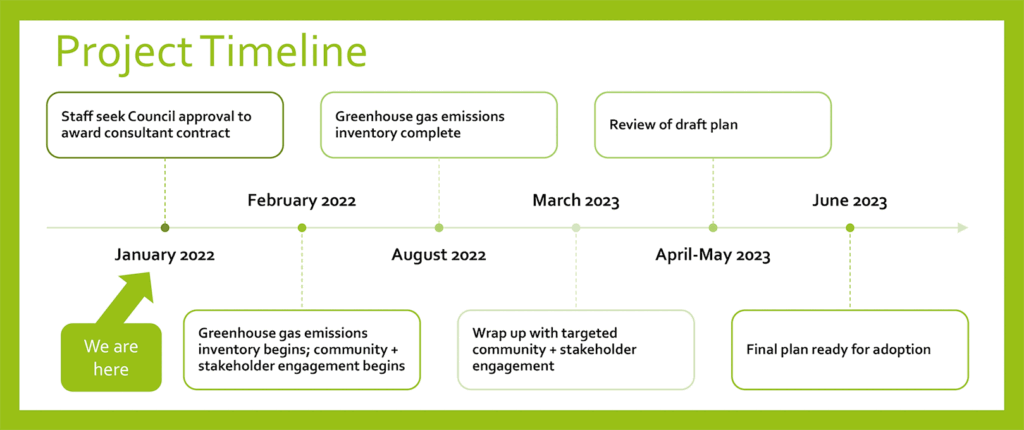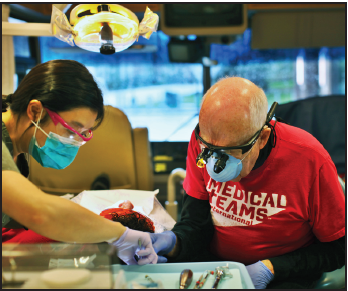
In a move aimed at decelerating climate change, Tualatin has tapped a team of four firms led by the Eugene-based Good Company to inventory local greenhouse gas emissions and chart a course for reducing them.
City Councilors voted unanimously last month to award Good Company with a $280,000 contract as part of the city’s Climate Action Plan. The project will also include Stafford Hamlet.
“Key deliverables from the consultant team will include first and foremost a greenhouse emissions inventory report and supporting documentation,” Tualatin Management Analyst Maddie Cheek explained. “This piece is really important because it will help us understand where our carbon emissions are coming from and how much we are currently emitting.”
Good Company, which has conducted more than 200 similar inventories and drafted climate action plans locally for Beaverton and Milwaukee, estimates it will take 14 months to collect the data and develop a plan for curbing emissions through behavior changes and updated technology.
“A key thing here is giving everyone a to-do list,” says Good Company founder and principal Joshua Proudfoot. “It’s not a ton of rocket science, it’s just a ton of process.”
The goal is to snap communities out of climate change denial by breaking down behavioral change into concrete, manageable steps because the idea of global warming is so big and abstract people avoid thinking about it.
And while most people defer to planting trees or shifting to solar power as the solution, slashing emissions has the biggest, quickest impact.
“We’re getting purely into the emissions that force the atmosphere to hold more heat and heat up the whole planet,” Proudfoot said.
The resulting data will additionally address emergency weather preparedness by planning for extreme weather phenomena like wildfires, landslides and flooding triggered by climate change.
“What we try and do is paint that picture of tomorrow clearly,” Proudfoot said.
“Their data can pinpoint problem spots, like intersections that consistently flood, so those areas can be slated for redesign and added to future capital improvement campaigns.
That’s one pathway toward action. Fixing stuff so we can deal with smoke or flood or whatever it is. And then the mitigation side is: Can we switch to renewable energy? Can we get more electric vehicles? Can we do more energy efficiency? There’s kind of these two big worlds we’re going to put down in your plan.”
Roughly half of the $280,000 budget is earmarked for community outreach to survey the community in both English and Spanish. Portland-based firms JLA Public Involvement and Izo, which specializes in Latinx outreach, will work with the community to understand how people live and ensure the mitigation plans fit Tualatin’s lifestyle.
“Part of that is going to be really trying to pull out some of those personal stories from people, like how do they move around the city? What do they do at their jobs? What are their daily lives like? That way, when we start talking about mitigation options, it feels to them and realistic.’’’ Said Jessica Pickul, JLA Senior Program Manager. “For this to work, it has to make sense to the people who live here.”
Though every community is a little different, the culprits are typically the same. Think fossil fuels and energy production.
“We know where to look. Could give you a list of best practices now, but we have to scale them,” Proudfoot said. “In most every community, the thing you’re going after is gasoline, diesel and electricity depending on where it’s generated.”
Good Company was selected from eight project bids.
Proudfoot praised the city for its thorough research, noting that Tualatin is the only city that’s surveyed other clients for feedback and perspective on working with them.




















